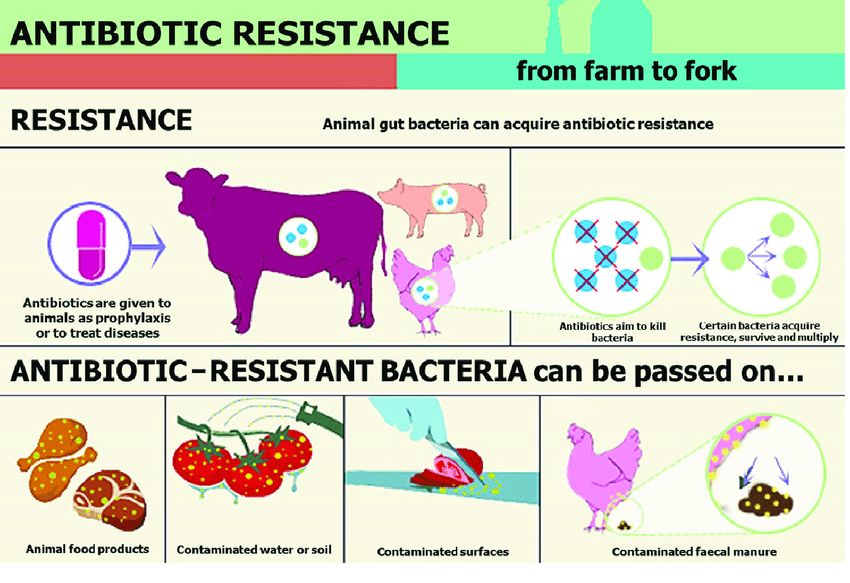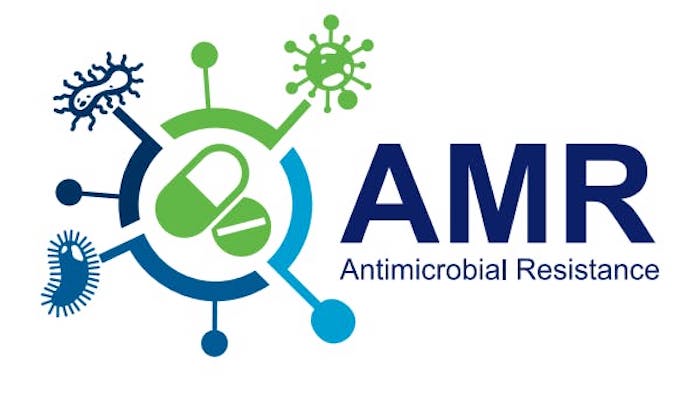Lerato Matheka
The growing threat of antimicrobial resistance (AMR) is not only a public health crisis but also a severe challenge to Africa’s agriculture and nutrition security.
A recent report from the Africa Centres for Disease Control and Prevention (Africa CDC) underscores that AMR is now a leading cause of death in Africa, surpassing fatalities from malaria, HIV, and tuberculosis. However, what is less recognised is the devastating impact AMR could have on the continent’s agricultural systems and nutrition.
As AMR continues to rise, driven by the overuse and misuse of antimicrobials in both human health and food production, it directly affects food security and agricultural productivity.
Major drivers of AMR in Africa include indiscriminate antimicrobial use in livestock and aquaculture, poor waste management, and environmental contamination from pharmaceutical residues and hospital effluents. This poses a particular risk to Africa’s food systems, which are heavily dependent on livestock and smallholder farming.
According to the report, “AMR’s impact extends beyond morbidity and mortality, threatening the achievement of Agenda 2030 goals, including poverty elimination, health for all, economic prosperity, gender equality, and Universal Health Coverage (UHC).”
In a region where agriculture is the backbone of many economies and a critical pillar for nutrition, AMR could compromise food security by making bacterial infections in livestock harder to treat, leading to lower yields and increased costs for farmers.
Impact on Agriculture and Food Systems
“Agriculture in Lesotho and the rest of the African continent is largely driven by smallholder farmers who rely on livestock as both a source of food and income, therefore, the overuse of antimicrobials in animals, particularly antibiotics to promote growth and prevent disease in livestock, has played a huge role in the accelerated the spread of AMR,” an agriculture expert Lebohang Mosaola warned.
“As bacteria become resistant to antibiotics, it becomes harder for farmers to manage animal health, leading to a loss of livestock, reduced production, and higher costs for veterinary care,” Mosaola said.
The report highlights that “the overuse and misuse of antimicrobials in human and food systems” are major contributors to the AMR crisis.
In the context of agriculture, Mosaola noted this translates into a weakened ability to control animal diseases, which could devastate both the food supply and the income of millions of smallholder farmers across the continent.
“This is a directly impact on nutrition moreso because livestock provides a significant source of protein and essential nutrients for African communities,” he said.
He noted that AMR poses risks to food safety, as resistant bacteria can be transmitted through the food chain, from farm to fork.
“Consumers of animal products may face increased exposure to resistant pathogens, making common foodborne illnesses more difficult to treat. This compounds the region’s already fragile food security, where about 200 million people are facing food insecurity and malnutrition,” Mosaola asserted.
WASH and Nutrition: Key to Fighting AMR in Agriculture
One of the key findings of the report is the critical role that Water, Sanitation, and Hygiene (WASH) programs play in mitigating AMR.
“One in three hospitals in the region lacks clean, safe running water, and one in eight people defecate openly due to inadequate sanitation,” the report states, inadequate WASH facilities in rural farming communities also exacerbate the spread of resistant bacteria.
For African agriculture to thrive and continue providing essential nutrition to millions of people, investments in WASH infrastructure are needed. Safe water and proper sanitation can reduce the need for antimicrobials in both human and livestock health by preventing infections before they start. The report suggested.
Mosaola advised that improved hygiene practices on farms, particularly in animal husbandry, can significantly reduce the transmission of AMR between animals and humans.
Sustainable Farming and Reduced Antimicrobial Use
The report emphasises that addressing AMR requires a comprehensive, multi-sectoral approach, particularly in food and agriculture, suggesting sustainable farming practices that reduce the need for antimicrobials, such as improved biosecurity, better vaccination programs for livestock, and rotational grazing, as essential in mitigating the AMR crisis.
Mosaola stressed that farmers should be encouraged and supported to adopt the suggested practices, alongside access to quality-assured diagnostics and veterinary care.
“By ensuring sustainable access to antibiotics for only necessary use, the agriculture sector can reduce the development of resistance while maintaining animal health and food production.”
The Africa CDC’s call for action is clear: “Support for the region should focus on preventing infections, strengthening health and food systems, developing human resources, ensuring sustainable access to diagnostics and therapeutics, and investing in laboratory infrastructure to support surveillance and data generation.”
For agriculture, this means prioritising biosecurity, infection prevention, and alternative farming methods that promote long-term food security and nutrition without the over-reliance on antimicrobials.
Summary
- In a region where agriculture is the backbone of many economies and a critical pillar for nutrition, AMR could compromise food security by making bacterial infections in livestock harder to treat, leading to lower yields and increased costs for farmers.
- “Agriculture in Lesotho and the rest of the African continent is largely driven by smallholder farmers who rely on livestock as both a source of food and income, therefore, the overuse of antimicrobials in animals, particularly antibiotics to promote growth and prevent disease in livestock, has played a huge role in the accelerated the spread of AMR,” an agriculture expert Lebohang Mosaola warned.
- The report emphasises that addressing AMR requires a comprehensive, multi-sectoral approach, particularly in food and agriculture, suggesting sustainable farming practices that reduce the need for antimicrobials, such as improved biosecurity, better vaccination programs for livestock, and rotational grazing, as essential in mitigating….

Your Trusted Source for News and Insights in Lesotho!
At Newsday Media, we are passionate about delivering accurate, timely, and engaging news and multimedia content to our diverse audience. Founded with the vision of revolutionizing the media landscape in Lesotho, we have grown into a leading hybrid media company that blends traditional journalism with innovative digital platforms.







